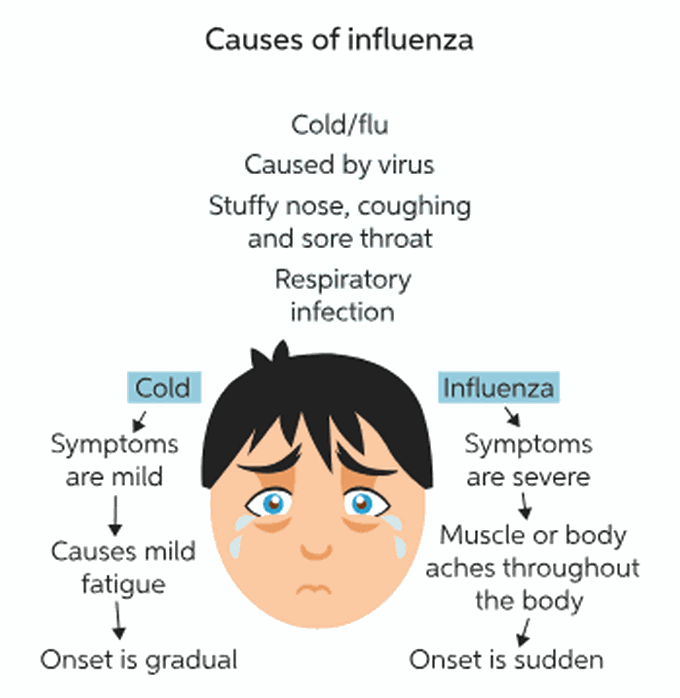


Causes on influenza
Influenza is caused by viruses. These viruses travel through the air in droplets when someone with the infection coughs, sneezes or talks. You can inhale the droplets directly. Or you can pick up the germs from touching an object, such as a computer keyboard, and then touching your eyes, nose or mouth. People with the virus are likely contagious from about a day before symptoms appear until about 5 to 7 days after they start. Children and people with weakened immune systems may be contagious for a slightly longer time. Influenza viruses are constantly changing, with new strains appearing often. If you've had influenza in the past, your body has already made antibodies to fight that specific strain of the virus. If future influenza viruses are like those you've come across before, either by having the disease or by getting vaccinated, those antibodies may prevent infection or lessen its severity. But antibody levels may decline over time. And antibodies against past influenza viruses may not protect you from new influenza strains. New strains can be very different from what you had before.

